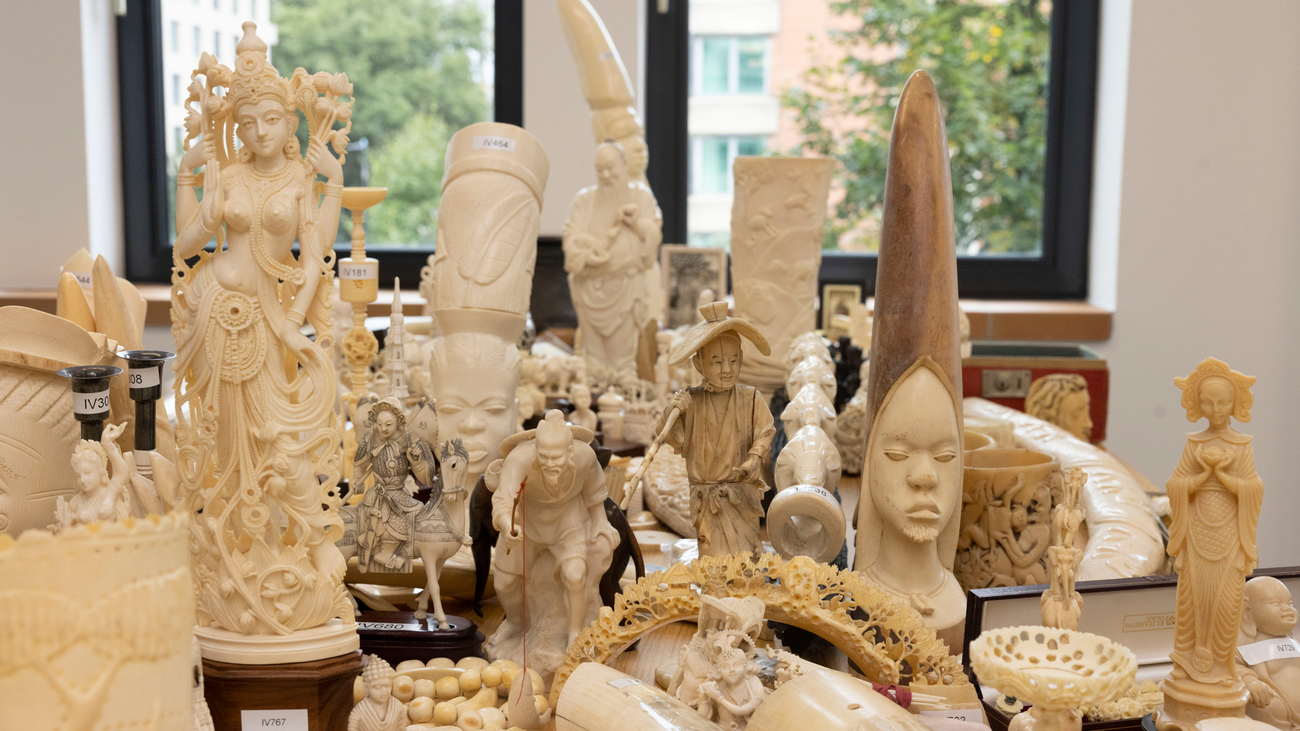bloody UK ivory trade still in business despite 2018 ban
bloody UK ivory trade still in business despite 2018 ban

In December 2018, we were celebrating a landmark victory for elephant protection with the Government announcing a ‘world-leading’ ban on the UK trade in elephant ivory. This was a long-fought campaign by IFAW and other groups, and it came about thanks to overwhelming support from the majority of the UK public, who were telling us loudly that they believed ivory should only be valued on a living elephant.
When we welcomed this ban, heralded by the Government as one of the toughest in the world, we could not have imagined that almost three years on, we would still be waiting for it to be implemented. Worst of all, with every passing day that it is still legal to buy and sell ivory in the UK, more elephants are illegally poached to feed demand.
We know that legal ivory trade provides a smokescreen for further illegal trade and with elephant populations already decimated by the poaching crisis, time really is running out. With 20,000 elephants a year still being poached for the ivory trade—or one every 26 minutes—it is vital that our Government implements the UK ivory ban urgently.
We recently commissioned some research to look at the scale of UK ivory trade during this window for buying and selling before the ban comes into force. Sadly, as we suspected, a significant amount of ivory continues to be legally bought and sold in the UK every single day.
Our 12-day snapshot of research discovered 913 items of ivory available for sale, averaging around 76 items each day. While only a minority may still want to own or trade ivory items, looking at an almost three-year delay in implementation, this is no small amount of ivory being traded, with every piece representing another dead elephant; each killed for trinkets, jewellery, or carvings that nobody needs.
With so much ivory available to purchase it is difficult to ensure that new ivory from elephants recently slaughtered by poachers is not entering the market, with traders passing it off as antique. Therefore, we are once again calling on the Government to act on its promise and implement the ban as soon as possible.
Conversely, as some continue to buy and sell ivory in the UK, many more are desperate to get rid of unwanted items they may have inherited, received as gifts, or even bought many years ago but since decided they want no part in the bloody ivory trade. In recent years, IFAW has run a number of ‘ivory surrenders’ to enable members of the public to give up their unwanted ivory, safe in the knowledge that it would be passed to the appropriate Government agency to be securely destroyed so it could never find its way back onto the market. These surrenders also allowed us to demonstrate to Government the strength of public feeling against the ivory trade in the years before we had a ban.
We expect that even more households will be rejecting ivory once the trade ban is implemented. In anticipation of this, we have been urging the Government for many months to put in place its own official process for secure disposal and destruction of ivory items donated by the public. However, such a process has yet to be announced. In the meantime, IFAW has continued to receive a steady stream of unwanted ivory. A final collection of donated items has now been handed over to Border Force and we are needing to draw a line under this and say IFAW can no longer accept unwanted ivory, and as we concentrate our resources on other vital work it is now over to the Government to properly manage this process.
I very much hope that in my next ivory update I will be able to say we have a working trade ban and a Government process in place to ensure the destruction of unwanted ivory. Both of these are vital steps as we work to protect elephants for future generations.
Please sign our action urging the Government to make the UK Ivory Act as effective as possible!
Related content
Our work can’t get done without you. Please give what you can to help animals thrive.